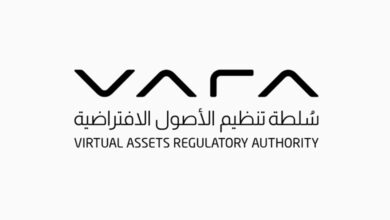Dubai Land Department Launches Real Estate Tokenization with Ctrl Alt

Dubai’s ambition to tokenize real estate ownership has taken a bold step forward with a live deployment under the Dubai Land Department’s Innovation Incubator. Involving Ctrl Alt, PRYPCO, Ripple’s blockchain infrastructure (XRP Ledger), and several prominent ecosystem players, the initiative reflects a growing appetite to redefine property ownership through digital means.
According to Ctrl Alt, the Dubai Land Department Real Estate Tokenization Project is now live, open to UAE residents holding Emirates IDs. Ctrl Alt describes the initiative as being launched in partnership with DLD and in collaboration with PRYPCO, VARA, Dubai Future Foundation, and Ripple. A minting platform has been made available to users via PRYPCO’s domain.
In a recent conversation with Robert Farquhar, who leads Ctrl Alt’s MENA operations, several critical clarifications were shared. Ctrl Alt, as of this week, has officially received a full license from VARA under two categories: Broker-Dealer and Token Issuer—making it the first company to receive a token issuance license under VARA’s framework ( not published on VARA website until the time drafting this article). While PRYPCO’s licensing status with VARA is not yet confirmed publicly, it is understood that they may have also received a license, likely under the Broker-Dealer category.
Ctrl Alt has been awarded the role of exclusive tokenization engine for DLD’s digital ledger of title deeds. Their role is to tokenize the property title into digital tokens, hosted via Ctrl Alt’s native wallet infrastructure. These tokens will then be distributed and sold by external parties referred to as “distributors,” of which PRYPCO is the first. More distributors are expected to join over time.
According to Farquhar, the selection of XRPL as the blockchain infrastructure was driven by criteria set by DLD that prioritized enterprise-grade networks with strong reputations, regulatory continuity, and operational resilience. Based on these criteria, XRPL emerged as the most suitable option. This infrastructure will serve as the first phase of the tokenization process.
The process itself introduces a new mechanism for ownership: upon purchasing a property, users receive a token that represents the title deed, hosted on Ctrl Alt’s wallet. Distributors like PRYPCO ( Proptech related to DAMAC Properties) are tasked with handling customer onboarding (KYC), payments—regardless of whether in fiat, crypto, or stablecoin—and enforcing regulatory and DLD-mandated restrictions. One key rule: no single buyer may own more than 20% of any fractionalized property token.
This evolution from pilot to live infrastructure brings with it a host of questions. How will fractional ownership be enforced on-chain? What protections are in place if wallet access is lost or compromised? And what will secondary market dynamics look like as more distributors onboard and tokens change hands, especially considering that ownership changes are not executed automatically on-chain? Distributors are required to return to the issuer to reflect any change in token ownership—introducing a layer of manual compliance and validation that could become a point of friction or regulatory oversight.
While this development affirms Ctrl Alt’s significant role in shaping Dubai’s tokenized property infrastructure, it also points to a moment of transition within the regulatory landscape. Prior to this week, neither Ctrl Alt nor PRYPCO appeared on VARA’s VASP register, including the section for in-principle approvals. If both companies were in a transitional licensing phase, this highlights the importance of ongoing improvements in registry updates. Transparency in emerging sectors is always evolving, and as VARA continues to pioneer new frameworks, such feedback from ecosystem observers may help refine public expectations and disclosures.
At the same time, the selection of XRPL—while justified as an enterprise-grade solution—may also spark technical debate. XRPL is rarely used for real estate tokenization globally. Its current infrastructure lacks support for the kind of smart contracts typically needed for advanced tokenization features such as automated dividend distribution or dynamic fee management. Whether it proves robust and adaptable enough for long-term asset ownership in such a complex use case remains to be seen.
Adding further industry context is the fact that Ctrl Alt previously integrated with Mantra Chain, a Layer 1 blockchain focused on real-world asset tokenization. Mantra had a partnership to tokenize $1 billion worth of real estate with DAMAC Properties, one of Dubai’s major developers. Ctrl Alt, being a blockchain-agnostic engine, retains the capability to work with Mantra or other networks in the future. While XRPL is currently the infrastructure chosen for this phase of the DLD tokenization project, the earlier engagement with Mantra raises new questions: what becomes of Mantra’s own tokenization roadmap, and how will it position itself in an increasingly competitive and institutionalized space?
Yet, despite these intersecting dynamics, Dubai’s move toward blockchain-based title deed issuance marks a foundational shift. The model positions DLD as one of the world’s first land departments to issue and manage title deeds through tokenization.
As Dubai continues its push toward becoming a global hub for tokenized finance and digital assets, the outcomes of this initiative may prove pivotal. What standards will define its long-term success? How will regulators evolve frameworks around asset-backed tokens and ownership restrictions? And will new distributors enhance market participation—or complicate it?
The experiment is no longer hypothetical. It’s live. And the industry, both local and global, is watching closely.





